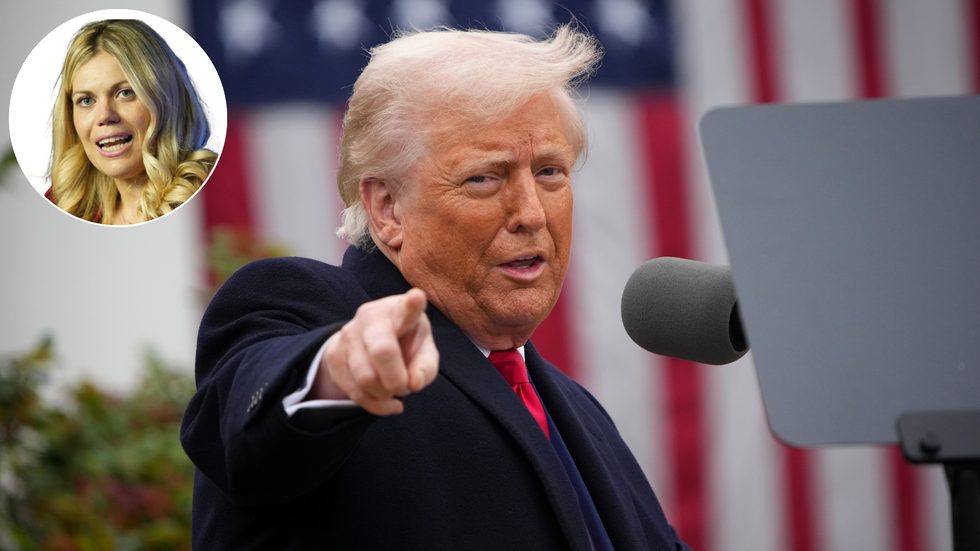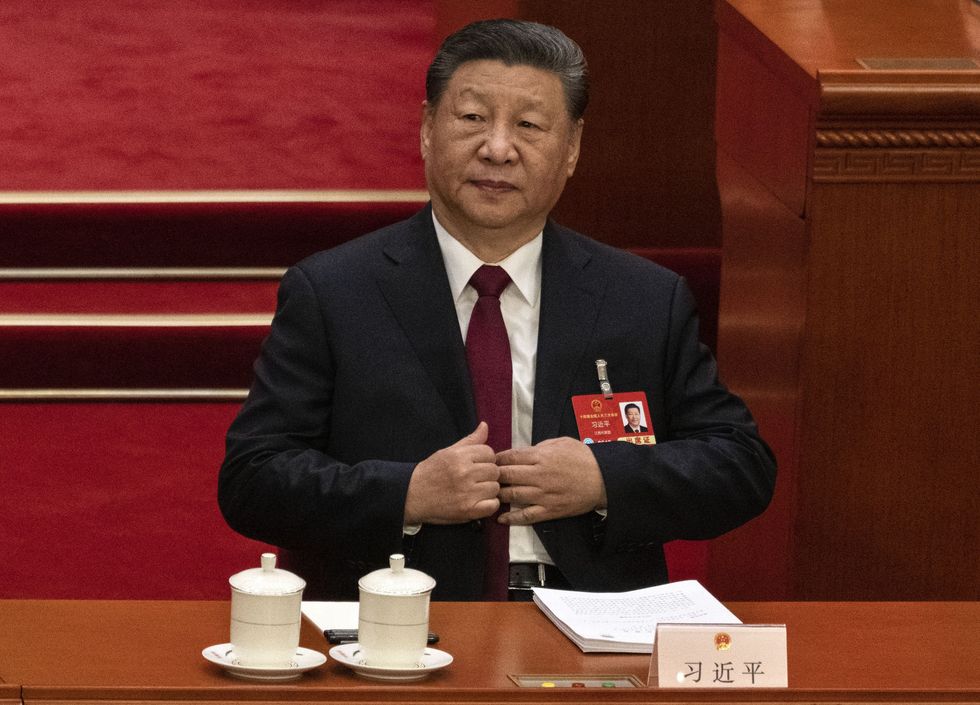Donald Trump: 'China wants to do a deal'
GB News
OPINION: We should be cheering Donald Trump on in his attempt to reset the global economy, says Miriam Cates.
Don't Miss
Most Read
Trending on GB News
The last few weeks have seen a bumpy ride for stock markets around the world. Investors, analysts, and politicians have all been scrambling to adjust to Donald Trump’s trade tariff announcements. On “Liberation Day” last week, the American President unveiled his giant flip chart of specific tariff charges with individualised rates based on the size of each country’s trading surplus with the US. Governments baulked at the potential consequences; some economists estimate the cost to the UK economy to be around £22bn a year.
On Wednesday, however, Trump softened his stance, delaying the implementation of the tariffs for a 90-day negotiating period with all countries except China. Despite this apparent climb down (which may have been part of Trump’s strategy all along), the implications are profound. For the American government, the purpose of this economic shake up isn’t only to protect US industry; it’s also about a fundamental reset of the world order.
And at the heart of that reset is China. While Trump has long expressed frustration with America’s trade imbalance, it is now becoming increasingly clear that the real target of this new wave of protectionist policy is China. Many are calling this the beginning of the "Great Divorce"—a conscious decoupling of the United States from the Chinese economy. But to understand why Trump is so committed to this policy, we need to rewind the clock.
Just over 25 years ago, China joined the World Trade Organization (WTO). At the time, there was great optimism in the West. China had promised open markets, fair competition, and to adhere to international rules. In return, the West—especially the United States—opened its doors and industries to Chinese goods and investment. The assumption was that economic liberalisation would lead to increased prosperity, and perhaps even the democratisation of China, and that free trade would benefit everyone.

Why Donald Trump's tariff war could reset the global order - Miriam Cates
GB News/Getty Images
But that promise was never fulfilled. Instead of playing fair, the Chinese state has persistently subsidised its industries to undercut Western competitors, engaged in widespread intellectual property theft, and severely restricted access to its own domestic markets. Meanwhile, cheap Chinese goods flooded global markets.
The US balance of trade, particularly with China, has deteriorated year after year. The US now has an annual trade deficit of $122bn. But what does that really mean? Why is a negative trade balance such a bad thing?
Imagine you own a traditional newsagent’s business. You live above the shop, earn £20,000 a year in profits from selling newspapers, magazines, soft drinks etc., but you and your family spend £30,000 a year on essential living costs such as electricity, food, water, running a car and property repairs. You have an annual ‘trade deficit’ of £10,000. So how do you survive? Well, you could sell your property and rent it back from its new owner. You could take on debt. You could allow another business to operate out of your premises and charge them rent. Whatever you do, it is just not sustainable to lose £10 000 a year. You must increase your sales and profits or—eventually—your way of life will collapse.
The same principle applies to national economies. A trade deficit means a country is consuming more than it produces, in other words the value of imports exceeds the value of exports. Over time, a negative balance of trade erodes a nation’s industrial base, weakens its economy, and hollows out its workforce.
This is exactly what has happened in the US. Over the last three decades, the US has lost millions of manufacturing jobs. Entire towns, once thriving with blue-collar industries, have become shells of their former selves. The decline of secure, skilled employment has triggered a cascade of social problems—poverty, drug abuse, broken families, rising crime, and what many now describe as a "crisis in masculinity."
This is not just an economic issue; it’s a human one. For millions of Americans, globalisation has not brought prosperity; it has wrought misery. And this is why Trump’s message resonated so strongly during the presidential election last year. Trump gained support among the factory workers, truck drivers, and miners whose livelihoods have been destroyed by America’s trade deficit and who understandably feel betrayed by an elite more concerned with Wall Street profits than national well-being.
While Trump wants to reduce the US trade deficit with all countries, China represents a unique threat. Chinese trade now accounts for around a third of the total US trade deficit. But China is not just competing economically, it is actively seeking to replace the United States as the world’s dominant power.
Through its Belt and Road Initiative, cyber warfare, control of critical technologies, and growing military strength, China is positioning itself to break American global leadership. Trump clearly believes that COVID-19 was part of this broader strategy—an event that, in his words, marked the end of any possible cooperation.

China is positioning itself to break American global leadership.
Getty Images
In a recent speech, Trump remarked:
“Look, I get along with President Xi. I have over the years. But, you know. You just—when Covid came, that was the end. That was it. That was called the bridge too far.”
This sense of betrayal has reinforced his determination to disentangle the US from China, whatever the short-term economic cost.
Can Trump achieve what he set out to achieve? It won’t be easy. The US economy is deeply entwined with China’s. Tariffs may protect American industries and kick-start re-industrialisation in the long term, but they will also raise prices for consumers and threaten rising inflation. And there are powerful business interests lobbying against tariffs and further fluctuations in the stock market may be enough to spook even a figure as apparently immune to criticism as President Trump.
But despite what is certain to be a rocky ride in the months and years ahead, those of us who care about the future of the West should be cheering Trump on in his mission to reset the global economy. Not only has America’s trade deficit damaged working-class communities, US de-industrialisation has weakened the West’s ability to stand up to China, Russia and Iran. Western governments like ours in Britain, and those in the EU, Australia and Japan should be doing whatever it takes to ‘cut a deal’ with Trump during this 90-day hiatus. Western economic re-armament is in all of our interests.







